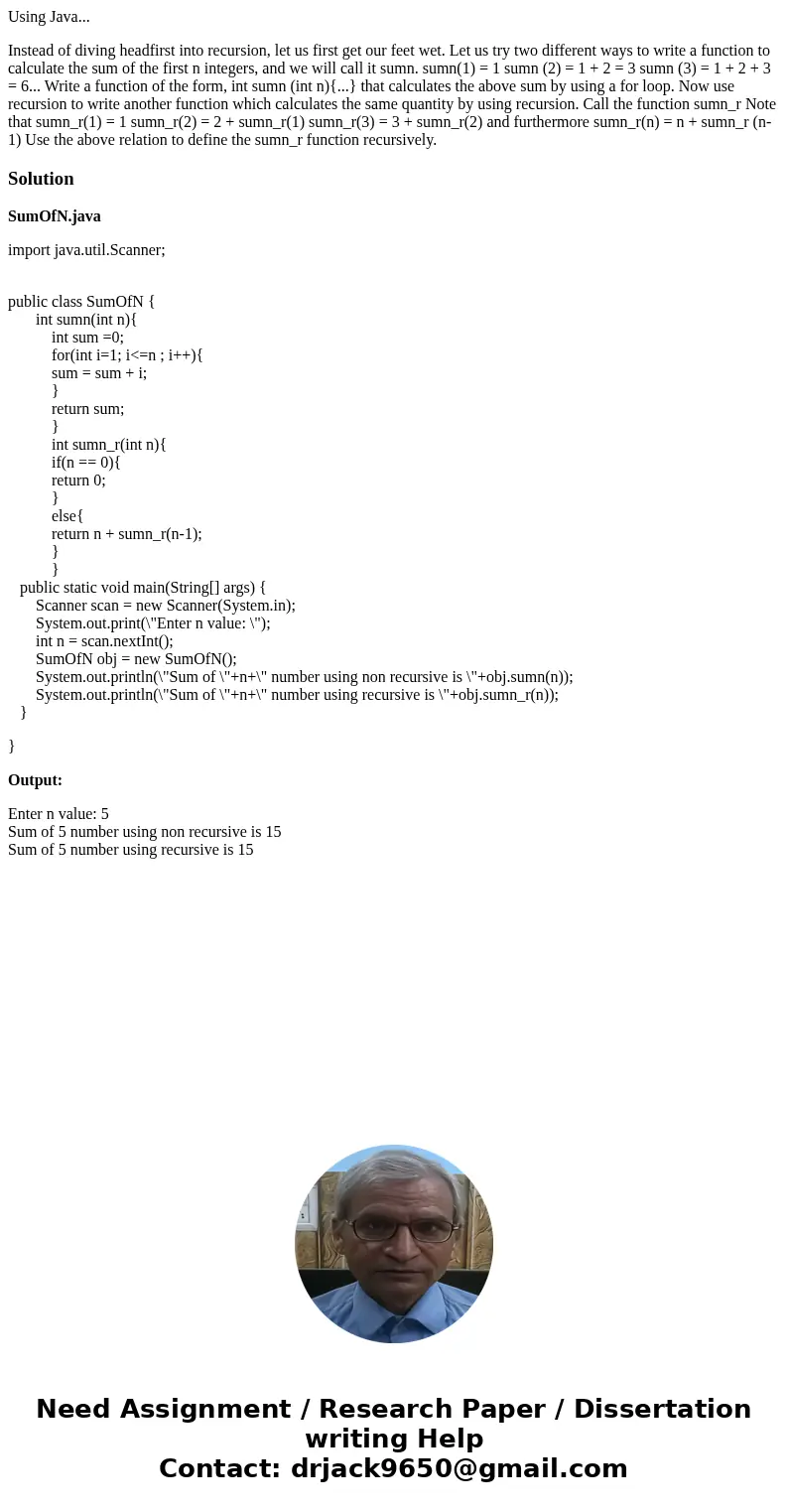Using Java Instead of diving headfirst into recursion let us
Using Java...
Instead of diving headfirst into recursion, let us first get our feet wet. Let us try two different ways to write a function to calculate the sum of the first n integers, and we will call it sumn. sumn(1) = 1 sumn (2) = 1 + 2 = 3 sumn (3) = 1 + 2 + 3 = 6... Write a function of the form, int sumn (int n){...} that calculates the above sum by using a for loop. Now use recursion to write another function which calculates the same quantity by using recursion. Call the function sumn_r Note that sumn_r(1) = 1 sumn_r(2) = 2 + sumn_r(1) sumn_r(3) = 3 + sumn_r(2) and furthermore sumn_r(n) = n + sumn_r (n-1) Use the above relation to define the sumn_r function recursively.Solution
SumOfN.java
import java.util.Scanner;
public class SumOfN {
int sumn(int n){
int sum =0;
for(int i=1; i<=n ; i++){
sum = sum + i;
}
return sum;
}
int sumn_r(int n){
if(n == 0){
return 0;
}
else{
return n + sumn_r(n-1);
}
}
public static void main(String[] args) {
Scanner scan = new Scanner(System.in);
System.out.print(\"Enter n value: \");
int n = scan.nextInt();
SumOfN obj = new SumOfN();
System.out.println(\"Sum of \"+n+\" number using non recursive is \"+obj.sumn(n));
System.out.println(\"Sum of \"+n+\" number using recursive is \"+obj.sumn_r(n));
}
}
Output:
Enter n value: 5
Sum of 5 number using non recursive is 15
Sum of 5 number using recursive is 15

 Homework Sourse
Homework Sourse